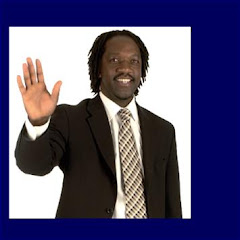Olivia Stein, a 17-year-old student at California School for the Deaf in Fremont, can probably count on one hand how many times she has seen someone like herself beaming from a television screen writes Chuck Barney for Contra Costa Times (03/01/12). It's no wonder, then, that she has become hooked on "Switched at Birth," a feel-good family drama pegged, in part, to multiple deaf characters who have brought some prime-time exposure to an underrepresented segment of society.
"It allows us to be more involved. We can relate. We're finally seeing people like us," she said through a Sign Language Interpreter. "And it's showing the world that deaf people are cool. We rock."
"Switched at Birth" debuted on ABC Family last summer with a sensationalistic premise: A couple of teen girls -- one of whom is deaf -- discover that, due to a hospital error, they wound up with the wrong parents. Now their families, from two different worlds, are struggling to get to know each other.
The show, which resumes its first season on Tuesday, became an instant ratings hit for ABC Family. Moreover, it sparked wide interest among the deaf community for its frank and respectful depiction of people with hearing loss.
The teen girl who is deaf, Daphne Vasquez, is played by Katie Leclerc, who in real life has Meniere's disease, a disorder of the inner ear that can affect hearing and balance. Also among the cast are deaf actors Sean Berdy and Marlee Matlin. The series was created by Lizzy Weiss, who took courses in American Sign Language (ASL) while attending Duke University.
"Switched at Birth" doesn't focus solely on deafness -- the soapy twists and turns cover a wide terrain. But it does explore several pertinent deaf issues, including communication and societal barriers, speech therapy and the debate over cochlear implants. It also makes extensive use of sign language, subtitles and something very rare in this era of pop-cultural clatter: Moments of utter silence.
Anna Schumacher, a Berkeley native who served as an on-set interpreter for "Switched at Birth," calls the show an important step forward because it doesn't isolate its deaf characters "into a novelty category" or portray them as disabled.
"While Daphne's life is by no means easy, because of many variables, she is seen as just as bright, capable, insightful and full as any teenager," she said. "Yet she experiences the world in a different way and has a wonderful language at her fingertips."
Leclerc, 25, says that the show is dispersing an important message.
"People tend to be afraid of what they're unfamiliar with, so communicating (with the deaf) can be somewhat intimidating," she said. "If we can come into people's homes and show that it's not that hard -- and that we all have similar struggles -- it's a good thing."
The actress, who is enjoying her first breakout role in a 10-year career, says that the feedback she has received from viewers is especially gratifying.
"I've heard from people who tell me they now have a better understanding of a deaf relative," she said. "Others have said they're changing their college major to sign language because they want to be an interpreter. That's pretty cool."
Several teen students interviewed through interpreters at the school for the deaf in Fremont find "Switched at Birth" to be pretty cool, too. Though they have quibbles with the show -- they'd prefer it, for example, if Leclerc was more fluent in signing and if her character had more interaction with other deaf kids -- they're drawn to it because it reflects pieces of their world.
Gurpreet Rai, 20, especially admires a plot line in which Daphne balked when her wealthy biological parents pushed to move her from an all-deaf school to a mainstream private school. In an emotionally powerful scene, the character recalled a previous stint at a "hearing" school, where she was treated like an outcast.
"That part of the show applies to my experience," Rai recalled. "I went to five hearing schools in Hayward, and it was a constant struggle. I felt lost -- like I had no future for myself."
Stein can also relate.
"Life was hard (at a mainstream school). I never had a friend. It was awkward," she said. "I finally went to my parents and told them, 'I'm done. I need a change, now.' "
Alexandria Brinkley-Green, 18, gets a kick out of the fact that Daphne is a basketball player, just like her. And she likes the way the show captures the ups and downs of romantic relationships between the deaf and hearing.
"What is the point of dating a hearing person if that person does not know sign language?" she said. "However, if that person was fluent in ASL, I'm open to the idea."
Several students applaud the show's casting of Berdy, a charismatic 18-year-old actor who attended CSD's sister school in Riverside. To them, he's a "cool role model." They even like the way he signs.
"We can pick up on his irony -- something hearing people can't," said Conrad Baer, 17.
But Berdy's casting also represents a sign of hope, according to Brinkley-Green.
"Some deaf people want to be actors, too," she says. "Maybe this will open a few doors to new possibilities."





